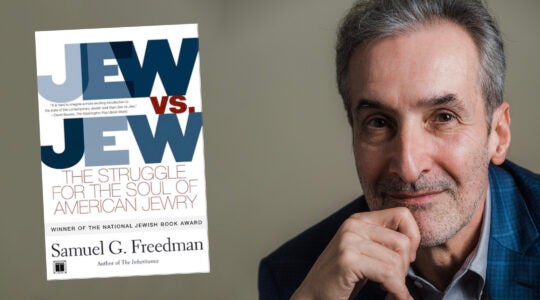Stewart Ain’s article “Revised Stony Brook Calendar Draws Ire” (March 16) is rife with inaccuracies and, as a result, aims to stir up controversy where none exists.
Indeed, the need to redesign Stony Brook’s academic calendar became obvious after the university’s administration received numerous complaints in the Spring 2011 semester when there was only one week between the end of classes and finals due to spring break being scheduled to coincide with Holy Week. The calendar was redesigned to provide maximum instruction time for students in a way that did not favor or punish any religious groups. Stony Brook has always been respectful of all religions, and we embrace and celebrate our diversity.
To be sure, while the article did note that no exams or papers will be due on Rosh HaShanah or Yom Kippur (just as there wouldn’t be on the major holidays of other faiths), the reporter neglected to explain that Stony Brook accommodated every request that was made to ensure that all students have ample time to make up work, as well as study for exams that would be given around those days.
A Stony Brook parent is also cited in the article saying that it is “protocol in major public institutions [in New York State] … to respect major religious holidays and not conduct regular business.” But only eight of the 29 four-year campuses in the SUNY system cancel classes for Rosh HaShanah and/or Yom Kippur. Among Stony Brook’s peers in the American Association of Universities, which represents the top 63 research universities in the country, only SUNY Buffalo and Brandeis cancel classes for those specific holidays. Furthermore, New York State government does not close or cease to conduct business for the Jewish holidays.
The article also quotes a professor asserting that the calendar changes were made “in secret.” To the contrary, the redesigned calendar was presented to a number of campus groups, including the University Council, which is made up of deans, vice presidents, and a Faculty Senate representative, and no objections were made. It was also presented at meetings of the Faculty Senate, Undergraduate Student Government, Graduate Student Organization and all clergy associated with the on-campus Interfaith Center. The only request for additional changes from our students was to build in more reading days in the spring semester and discontinue the practice of giving exams on weekends. Both requests were accommodated.
The bottom line is that religious observance is, and must always be, a personal choice, not an institutional mandate.
Vice Provost for Undergraduate Education Stony Brook University
The New York Jewish Week brings you the stories behind the headlines, keeping you connected to Jewish life in New York. Help sustain the reporting you trust by donating today.




